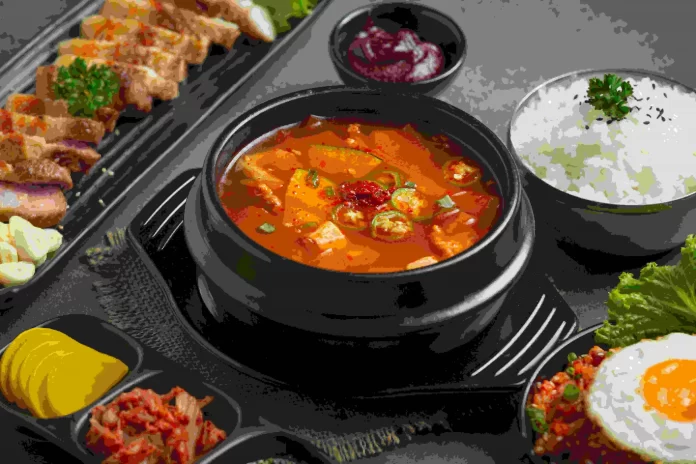South Korea, a land where tradition meets modernity, is a paradise for food enthusiasts. Korean cuisine is renowned for its bold flavors, diverse dishes, and unique dining experiences. As you embark on your Korean culinary adventure, let’s delve into the pros and cons of exploring this gastronomic wonderland and discover the must-try dishes that will tantalize your taste buds.
Pros of Korean Culinary Adventures:
1. Diverse and Flavorful Cuisine:
- Pro: Korean cuisine is a flavor explosion, offering a harmonious blend of sweet, savory, spicy, and umami notes. From barbecue to stews, each dish tells a story of tradition and innovation.
2. Interactive Dining Experience:
- Pro: Korean dining often involves interactive experiences, such as barbecue tables where you cook your own meat or communal hot pots. This fosters a sense of camaraderie and makes dining a social event.
3. Healthy Options:
- Pro: Many Korean dishes feature fresh vegetables, lean meats, and fermented foods like kimchi, contributing to a generally healthy and well-balanced diet.
4. Innovative Street Food:
- Pro: Korean street food is a delight for the adventurous eater. From tteokbokki (spicy rice cakes) to hotteok (sweet pancakes), the streets of Seoul are a treasure trove of culinary surprises.
5. Culinary Tourism:
- Pro: Korean culinary adventures offer the chance to explore different regions, each with its own specialties. From the seafood delights of Busan to the hearty dishes of Jeju Island, there’s always something new to discover.
Cons of Korean Culinary Adventures:
1. Spiciness Levels:
- Con: Korean cuisine tends to be spicy, and if you’re not accustomed to heat, some dishes might be a challenge. However, many places allow you to adjust spice levels to suit your taste.
2. Language Barrier:
- Con: While major cities have English menus, there can still be a language barrier in more remote areas. Learning a few basic Korean phrases or having a translation app can be helpful.
3. Limited Halal Options:
- Con: Finding halal options can be challenging, especially when certain dishes commonly contain non-halal ingredients. Researching halal-friendly places or sticking to vegetarian options may be necessary.
4. Fermented Flavors:
- Con: Fermented foods like kimchi, while a staple of Korean cuisine, may not appeal to everyone due to their strong and acquired taste.
5. Etiquette Challenges:
- Con: Korean dining has its own set of etiquettes, such as using chopsticks and sharing dishes. While this adds to the cultural experience, it might be challenging for those unfamiliar with Korean customs.
Must-Try Dishes in Korean Cuisine:
1. Bibimbap:
- A rice bowl topped with an array of vegetables, a fried egg, and gochujang (chili pepper paste).
2. Kimchi:
- Fermented vegetables, often cabbage or radishes, seasoned with chili, garlic, ginger, and other spices.
3. Samgyeopsal:
- Grilled pork belly slices typically enjoyed with a dipping sauce and wrapped in lettuce leaves.
4. Japchae:
- Stir-fried glass noodles with vegetables and occasionally beef, seasoned with soy sauce and sesame oil.
5. Sundubu-jjigae:
- A hot and spicy stew featuring uncurdled tofu, vegetables, sometimes meat, and gochujang or gochugaru (chili powder).
READ MORE ARTICLE
Panduan Makanan Halal di Korea: Tempat Makan Wajib di Seoul
READ MORE ARTICLE
Rahsia Percutian Bajet: Tips & Tricks Untuk Destinasi Impian
READ MORE ARTICLE
Tempat Menarik Di Thailand: Destinasi Indah yang Wajib Dikunjungi
Embarking on a Korean culinary adventure is a sensory journey filled with rich flavors, cultural insights, and unforgettable dining experiences. While there may be challenges along the way, the pros far outweigh the cons. So, venture forth with an open mind and a hungry heart, ready to savor the delights of Korean cuisine that will leave you craving for more. Bon appétit or 맛있게 드세요 (masitge deuseyo) as the locals say, and enjoy your gastronomic exploration of Korea!
Looking for Korea Tour Package, Turkey Tour Package or Honeymoon Package Malaysia? Click the link!


















